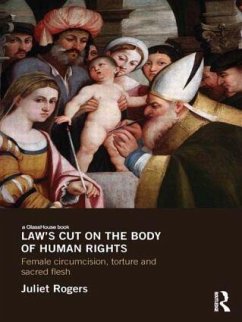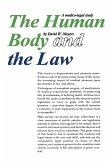In Australia, the US, England, Scotland, Italy, France and in Egypt there have been repetitive calls to legislate against the practices of female circumcision described as female genital mutilation. But in western countries where anti-female genital mutilation legislation has been passed there has been little or no consultation with the communities in which the practices occur: documents are published only in English, and community responses are ignored or simply deemed biased or irrelevant. Opportunities for dialogue quickly turn into opportunities for education and legislation about the unacceptability of the practices. But why are communities denied their capacity to speak and influence political opinion and legal decision making? Why in an era of human rights, which heralds the importance of self-determination, freedom of expression and women's participation in political arenas, are women from these communities unable to engage in dialogue on this practice? Law's Cut on the Body of Human Rights considers how such assertive legislative responses, and this lack of curiosity and consultation with communities, points to a particular liberal investment the practices called female genital mutilation and what they signify. Drawing on psychoanalytic theory, Juliet Rogers examines the language of recent statutes and, where relevant, some of the accompanying policies and broader media debates, Female genital mutilation, she argues, elicits such a singular legal response insofar as it embodies that subjectivity against which the very subject of liberal law is imagined - and only imagined - to exist: in a state of non-mutilation, non-prohibition or, in a psychoanalytic idiom, non-castration.
Hinweis: Dieser Artikel kann nur an eine deutsche Lieferadresse ausgeliefert werden.
Hinweis: Dieser Artikel kann nur an eine deutsche Lieferadresse ausgeliefert werden.








